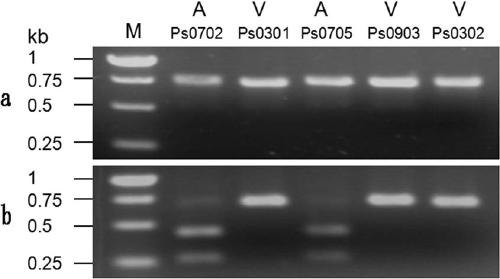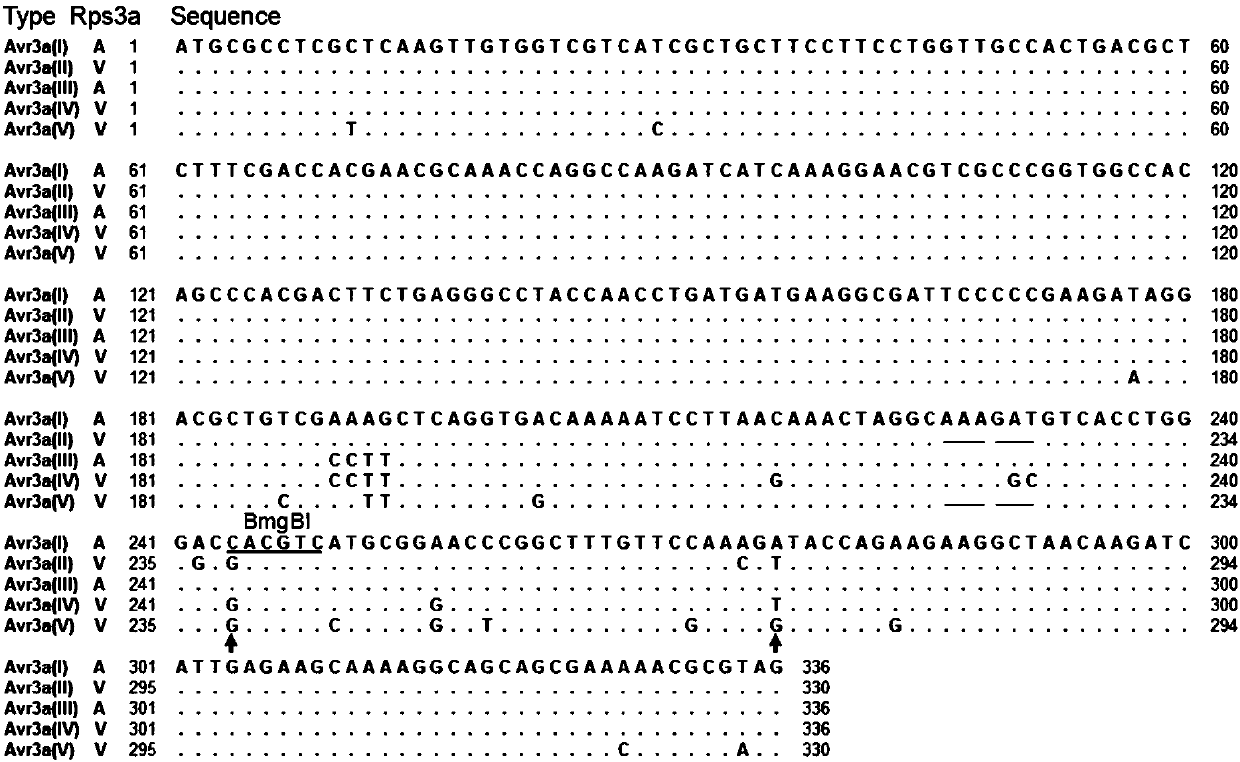Molecular method for determining the pathogenicity of the Phytophthora soybean avirulence gene avr3a to the differential host l83-570
A technology of Phytophthora sojae and avirulent genes is applied in the directions of microorganism-based methods, biochemical equipment and methods, and microorganism determination/inspection, etc., to achieve the effect of saving bases, no intermediate types, and obvious effects.
- Summary
- Abstract
- Description
- Claims
- Application Information
AI Technical Summary
Problems solved by technology
Method used
Image
Examples
Embodiment
[0034] 5 strains of Phytophthora soybean to be detected: strain Ps0702 (isolated in 2007), strain Ps0301 (isolated in 2003), strain Ps0705 (isolated in 2007), strain Ps0903 (isolated in 2009), strain Ps0302 (isolated in 2003), these strains They were all isolated from Chinese soybean field soil by using soybean leaf dish trapping method, then purified by single spore isolation, transferred to 10% V8 slant medium and stored at 12°C. The 10% V8 slant medium refers to the Add 0.2g of calcium carbonate and 15g of agar powder to 100mL of V8 vegetable juice filtered with gauze, add distilled water to make up to 1000mL, heat to melt the agar completely, then divide it into Erlenmeyer flasks, and sterilize at 121°C for 20 minutes;
PUM
 Login to View More
Login to View More Abstract
Description
Claims
Application Information
 Login to View More
Login to View More - R&D
- Intellectual Property
- Life Sciences
- Materials
- Tech Scout
- Unparalleled Data Quality
- Higher Quality Content
- 60% Fewer Hallucinations
Browse by: Latest US Patents, China's latest patents, Technical Efficacy Thesaurus, Application Domain, Technology Topic, Popular Technical Reports.
© 2025 PatSnap. All rights reserved.Legal|Privacy policy|Modern Slavery Act Transparency Statement|Sitemap|About US| Contact US: help@patsnap.com



